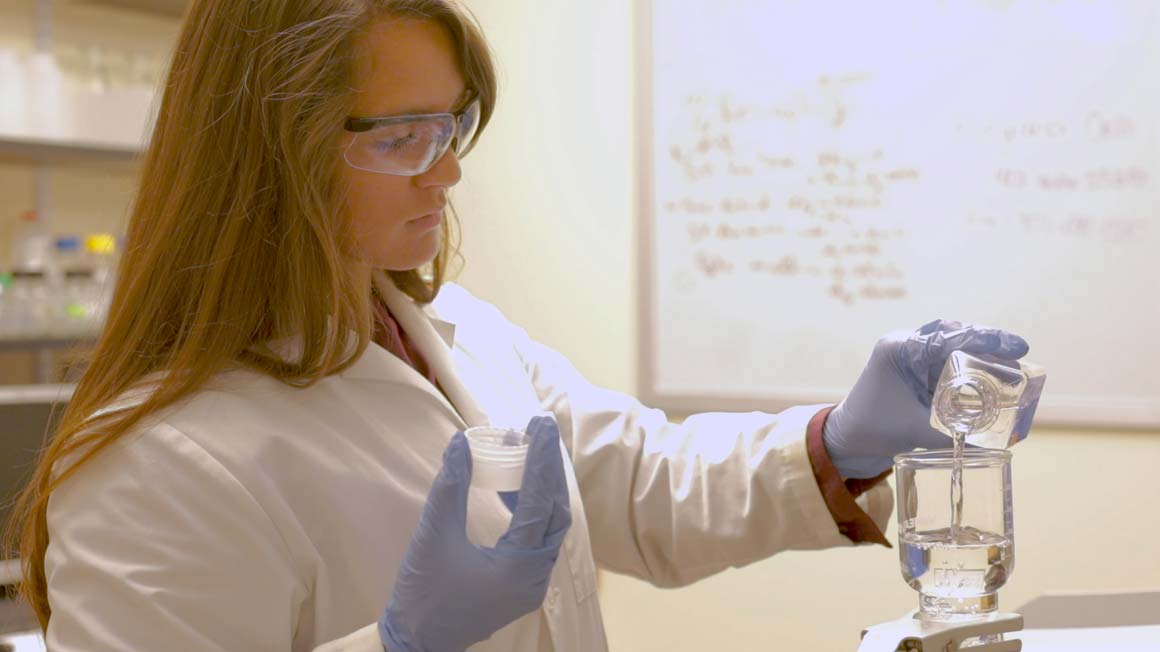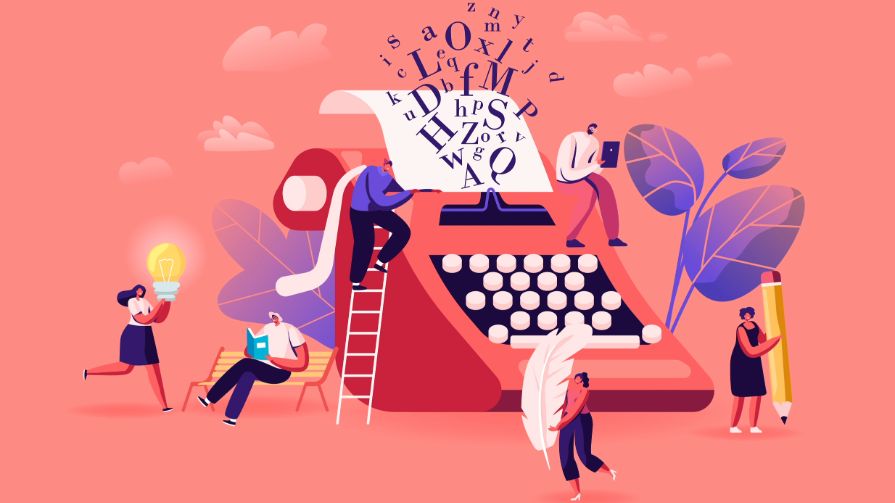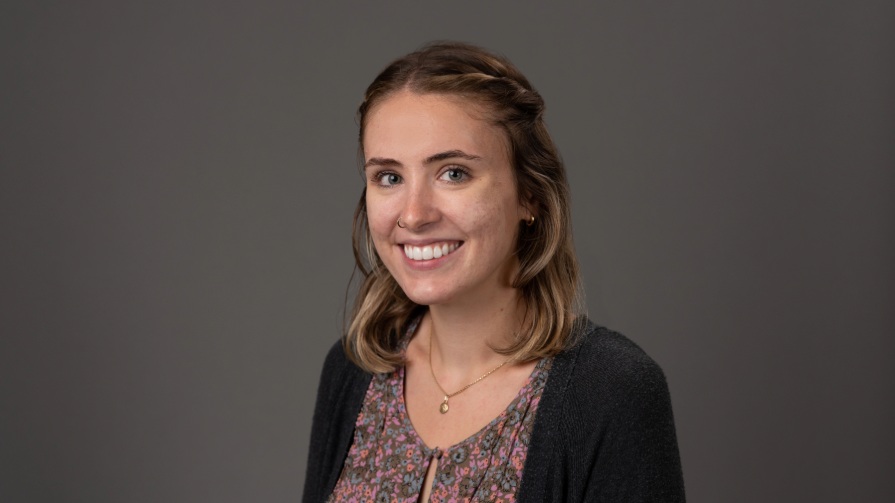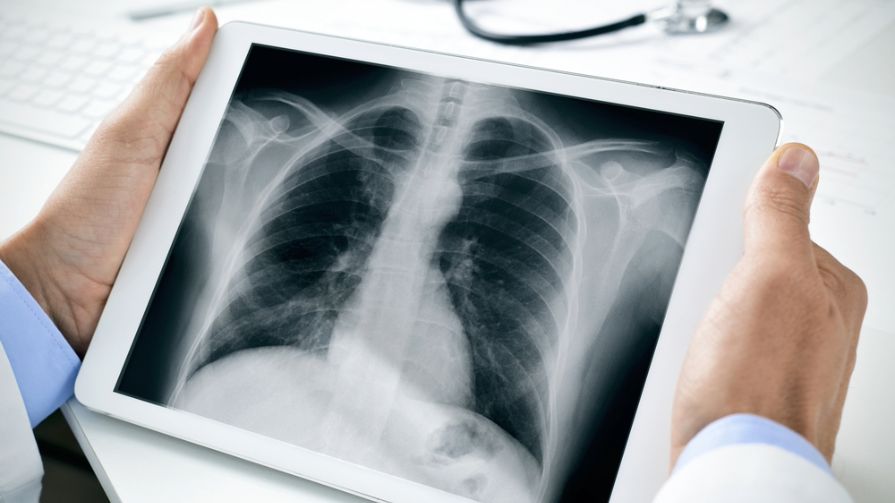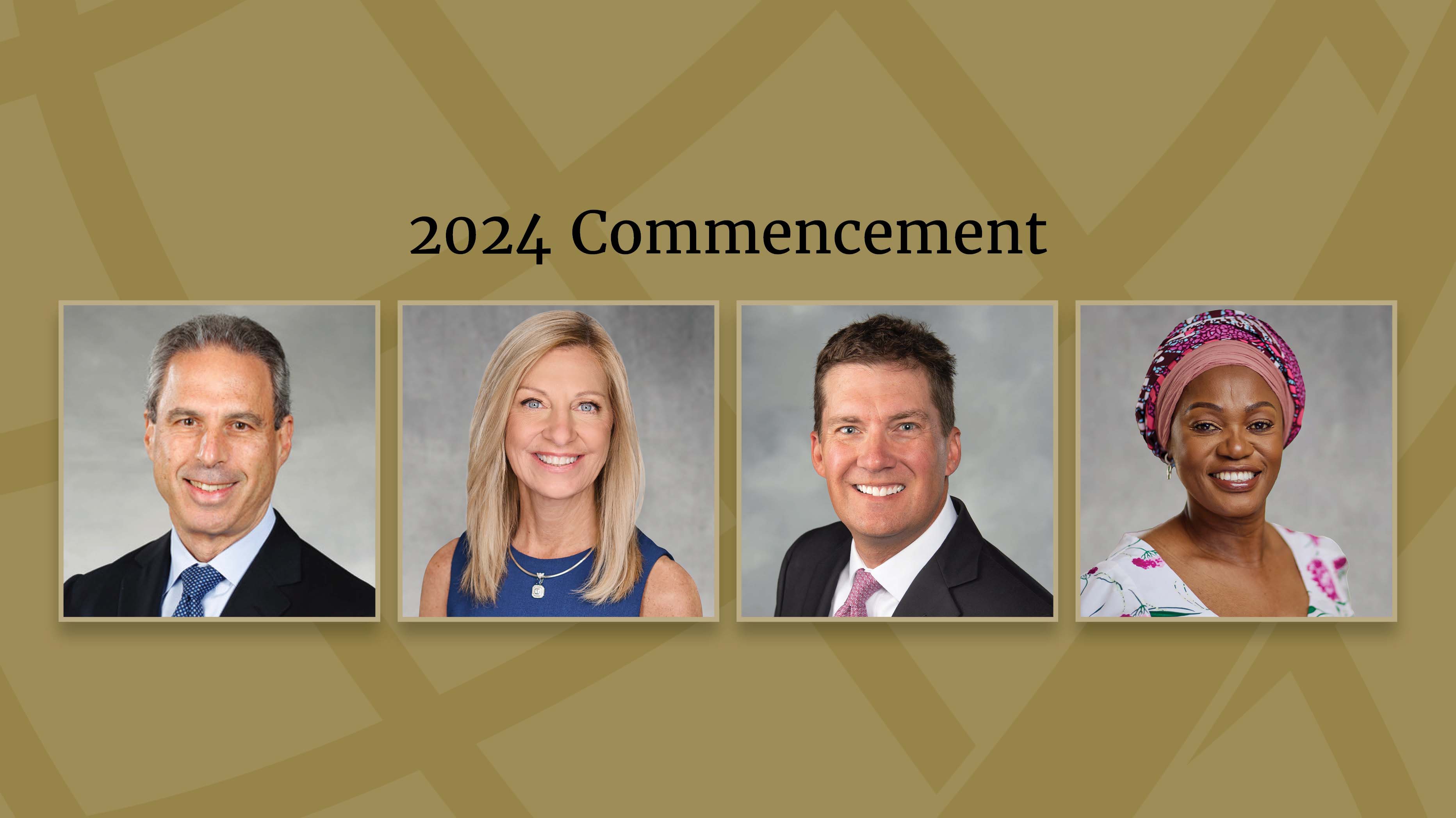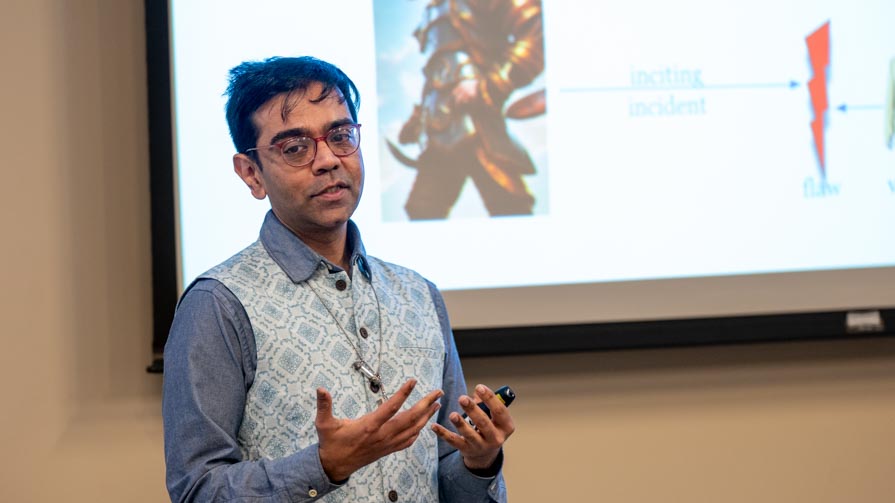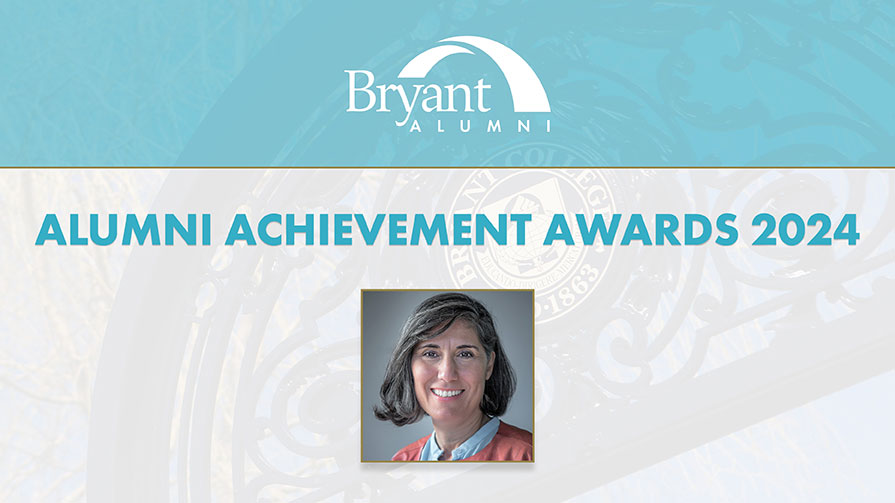The end of the academic year marked the beginning of an important summer-long project for five Bryant students studying biochemistry, environmental science, and chemistry. The students, each dedicated to advancing their field, took advantage of an invaluable opportunity to conduct research through the Summer Undergraduate Research Fellowship (SURF) program and work in the lab with Associate Professor of Science and Technology Christopher Reid, Ph.D.
SURF, organized jointly by RI NSF EPSCoR/RI C-AIM and RI-INBRE, offers paid research positions for undergrads to do real work on original research projects. Working under Professor Reid’s guidance, this year’s SURF students honed their lab skills, investigated new and emerging areas of science, and learned what the scientific process was all about.
“The work the students do is published in good quality academic journals,” says Reid, who notes that the lab’s studies have resulted in three patents thus far. “The lab work is fun, it’s challenging, and it’s different every single day.”
“It’s a bit of an honor to be part of this group, really. We’re all working on incredible things. We’re just starting out but we’re working with experienced professors and our results have meaning."
A summer of discovery
Through their experimentation, the lab’s student investigators have the chance to see their coursework play out in real life, while addressing important issues. “I’m learning so much in the lab,” says Michael Pepin ’20, who studied protein stability for potential antibiotic applications. “I’m able to take what I’ve learned in the classroom and truly understand it in action.”
It also gives the students a better understanding of their field, and what it means to actually be a scientist. “I’m learning how labs actually run,” says Abigal Enck ’20, who explored how zooplankton, an important part of the ocean food chain, communicates. “A lot of the time, what we see of science and lab work is sort of romanticized, so SURF is helping me understand what it’s actually like.”
For Trent Massam ’21, who alongside Professor Reid and Lecturer Gerald John, Ph.D., examined microplastic bacterial growth in the ocean, the summer research was an opportunity to learn firsthand from his mentors and gain real world experience. “Being able to work so closely with your professors on actual projects like this is the kind of experience you don’t get in the classroom,” he says.
“You get great feedback, not only on your presenting skills, but also on the work that you’re doing. You get advice on where to go next with this particular project as well as other opportunities you can explore.”
“It’s a bit of an honor to be part of this group, really. We’re all working on incredible things,” he adds. “We’re just starting out but we’re working with experienced professors and our results have meaning.”
Caroline Williams ’22 analyzed the active form of a novel antibiotic this summer in order understand how it affects bacterial cells. The work gave her a chance to make a difference while still a college student. “To know that you’re actually adding something new to the research is kind of incredible and it inspires you to do more in the future,” say Williams.
“Professor expects a lot from his students, but he gives you all of the tools and support you need to be successful,” Enck says.
Collaboration and community
The students’ summer research culminated with the annual SURF conference, which brought together more than 400 faculty, students, researchers, and administrators from schools across Rhode Island. The event gave the students an opportunity to present their work to each other and to experts in the field – and to learn even more about potential career paths.
Reid, who helped prepare the students to share their findings and coached them on their presentation skills, notes that the conference allows them to take a step back and see the many opportunities available in science. “They get to see what all of the undergraduates are working on at schools across the state,” he says. “They can make friends and connections with other like-minded students studying science.”
“It’s a great experience,” says Pepin. “You get great feedback, not only on your presenting skills, but also on the work that you’re doing. You get advice on where to go next with this particular project as well as other opportunities you can explore.”
“You learn so much from working in the lab. When I’ll be applying for a job or grad school, I can say ‘I’ve done this before, I’ve done procedures like PCR purification and DNA extraction.’"
“It makes me really excited and happy to see and talk with all of these other students who are doing the same thing as me,” agrees Massam. “I’ve talked to several other researchers on other projects who want to meet up and compare results.”
Careers in science
Reid notes that the experience the students gain through SURF prepares them for a wide range of careers in a variety of fields, pointing to successful alumni in medicine, academia, and research positions.
“You learn so much from working in the lab,” says Massam. “When I’ll be applying for a job or grad school, I can say ‘I’ve done this before, I’ve done procedures like PCR purification and DNA extraction.’”
“Professor Reid is one of the best mentors I’ve ever had, and being part of the SURF Lab is one of the best academic decision you can make.”
“It’s helping become more comfortable and confident with lab work in a research setting, which I know is going to propel me forward,” adds Enck, who is planning to attend ophthalmology school.
In addition to the career and graduate workshops made available through the SURF program, Reid mentors students on finding post-grad opportunities, as well as the application process. “I get to know the students very well. It’s one of my favorite parts of the year,” he says.
The students appreciate that one-on-one guidance. “I thought that being part of the Reid lab would be not only a good way to gain lab experience but to help me learn what path I want to go down,” says Williams, who is considering a career as a researcher. “Talking with him about all of the possibilities is amazing.”
To Enck, the summer has opened a world of opportunities. “Professor Reid is one of the best mentors I’ve ever had,” she says, “and being part of the SURF Lab is one of the best academic decision you can make.”
